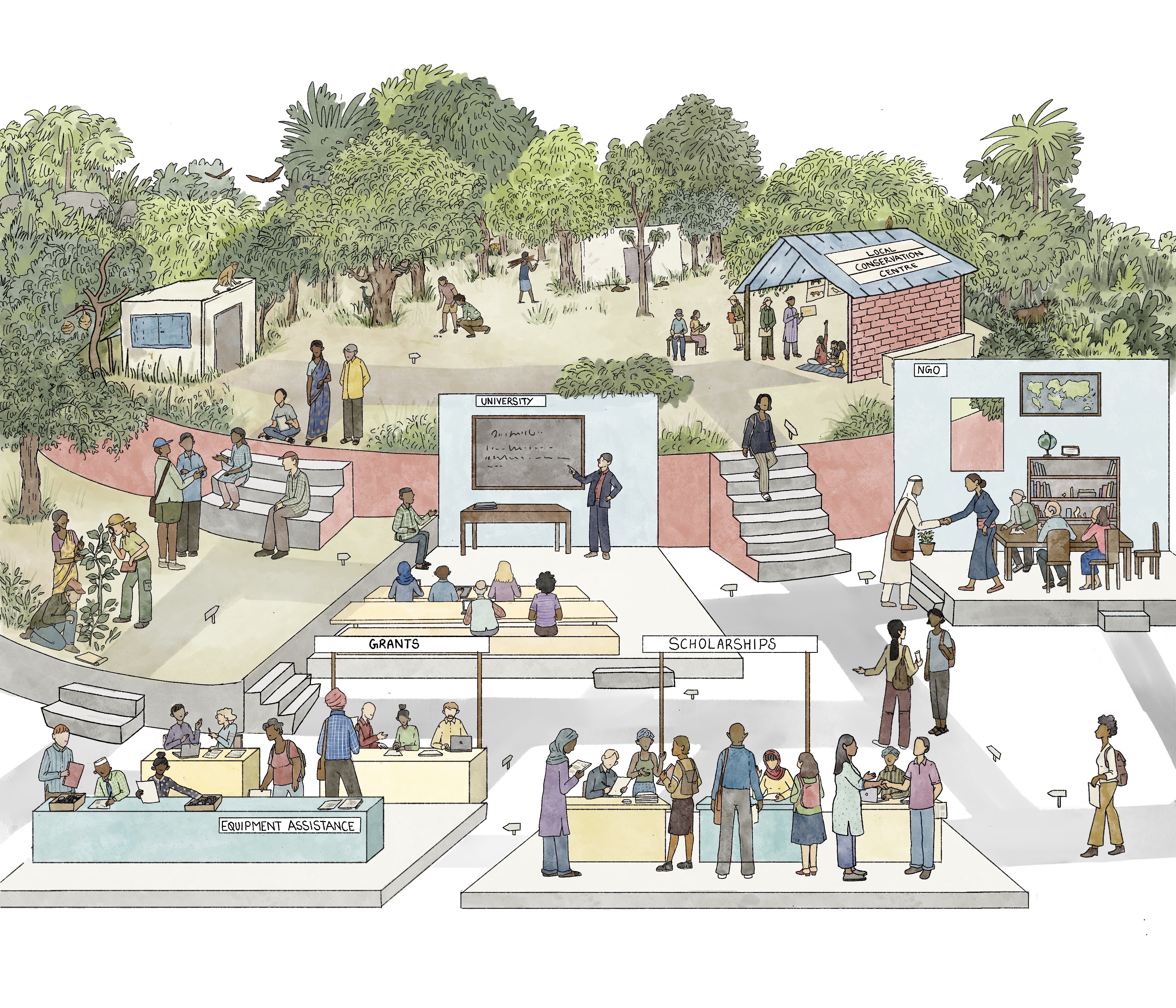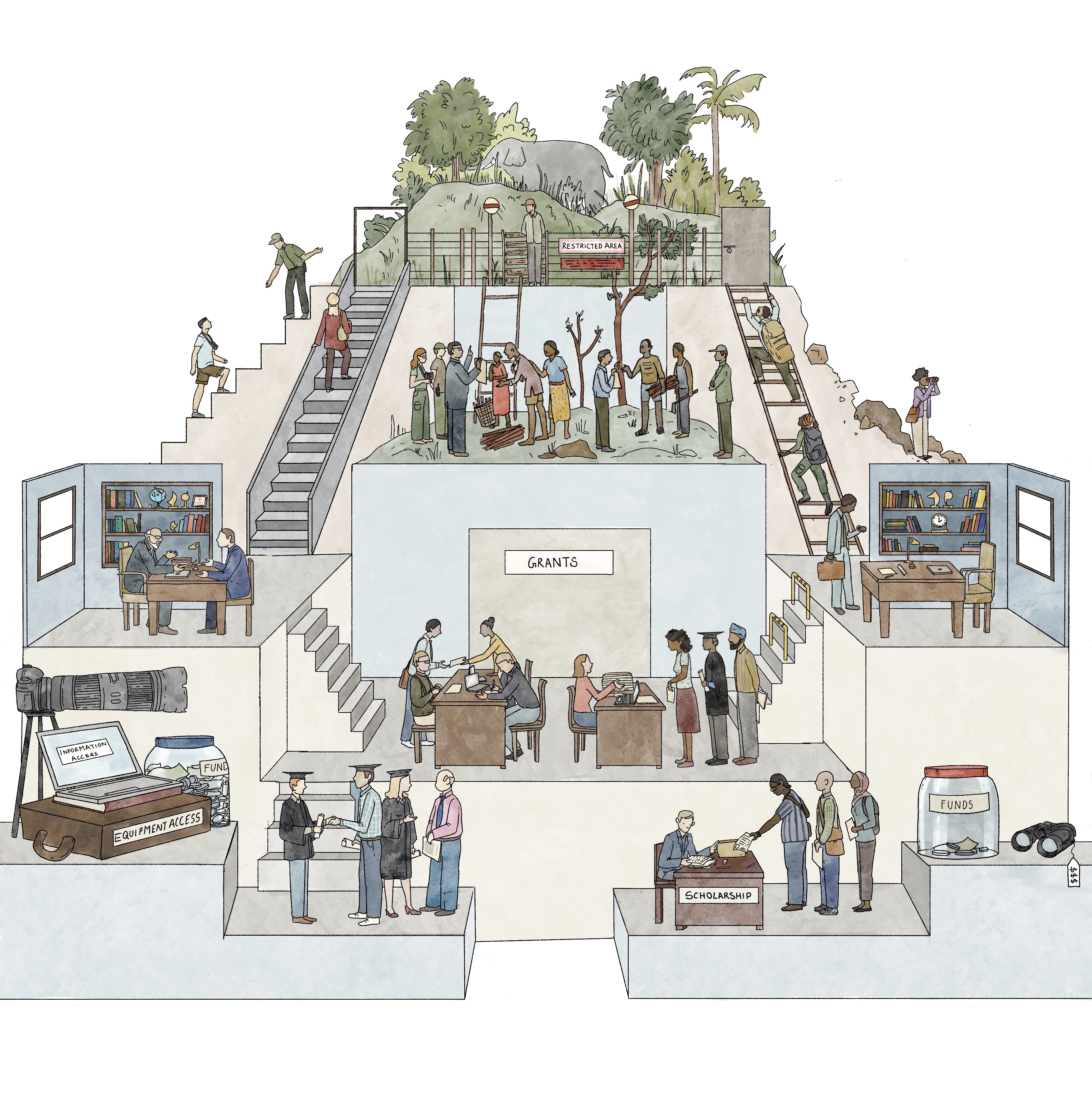News
Overcoming racism in the twin spheres of conservation science and practice
Wildlife conservation, both in terms of academia and practice, has a history of deep-seated systemic racism, which has marginalised Black, Indigenous, and People of Colour (BIPOC) communities; positive changes to revert this discrimination have been painfully slow. Furthermore, this topic often lacks open discussion, as people feel uncomfortable about considering their role in unjust systems, or the steps they should take to improve them.
A diverse team from across the globe –representing different ethnicities, different levels in academia, academic and field experience, specialisation in conservation, organisational affiliations and regions of the world– collaborated to discuss ways of addressing and overcoming racism in conservation.
The resulting paper published in Proceedings of the Royal Society B, with several contributors from WildCRU, has made extensive pragmatic recommendations for combatting racism in biodiversity conservation science and practice. While we do not purport to speak for all conservationists in our different communities, our varied perspectives represent our lived experiences.
Treating conservation science and conservation practice as mutually reinforcing “twin spheres”, we review how contemporary conservationists, albeit perhaps unwittingly and well-meaningly, often perpetuate this systemic racism. Academic institutions often produce conservation graduates with partial and problematic conceptions of conservation’s history and contemporary purposes; many of these graduates may go on to push outmoded conservation models that reproduce conservation’s colonial history, thereby harming rural BIPOC communities, and further restricting access and inclusion for BIPOC conservationists.
We recognise that, as conservation professionals, we must take meaningful steps towards conservation practices that empower BIPOC. Conservation scientists who are also conservation practitioners are at the nexus of the twin spheres, so are in important positions to affect change. In this paper we provide steps which can help us better understand and weaken the vicious cycle of racism in conservation, and take action towards replacing that with more virtuous cycles of inclusion, equality, equity, and participation in conservation.
Lead author Lauren Rudd, a DPhil graduate at WildCRU said: ‘The conservation community must acknowledge that both historically and presently, BIPOC communities have been most impacted by conservation action and the least included in decision-making. These unjust power dynamics need to be broken, and we hope that the recommendations provided in this paper will add value to the ongoing discussion about how best to do this’.
Author Merlyn Nomusa Nkomo added ‘For true and meaningful impact in the future, conservation science and practice must commit to investing in local conservationists and their capacity to lead and sustain the efforts for biodiversity conservation where they are.’
Professor Claudio Sillero, WildCRU Deputy Director, said: ‘It troubles me that a career I chose with great passion, and one I have dedicated my life to, is deemed racist. What can we do? It is through acceptance and affirmative action that we can – and we must – revert any wrong doings of the past, and in choosing inclusiveness we are offering a constructive way forward’.
The paper – ‘Overcoming racism in the twin spheres of conservation science and practice’ was published in Proceedings of the Royal Society B: Biological Sciences and can be found here:
http://rspb.royalsocietypublishing.org/lookup/doi/10.1098/rspb.2021.1871







